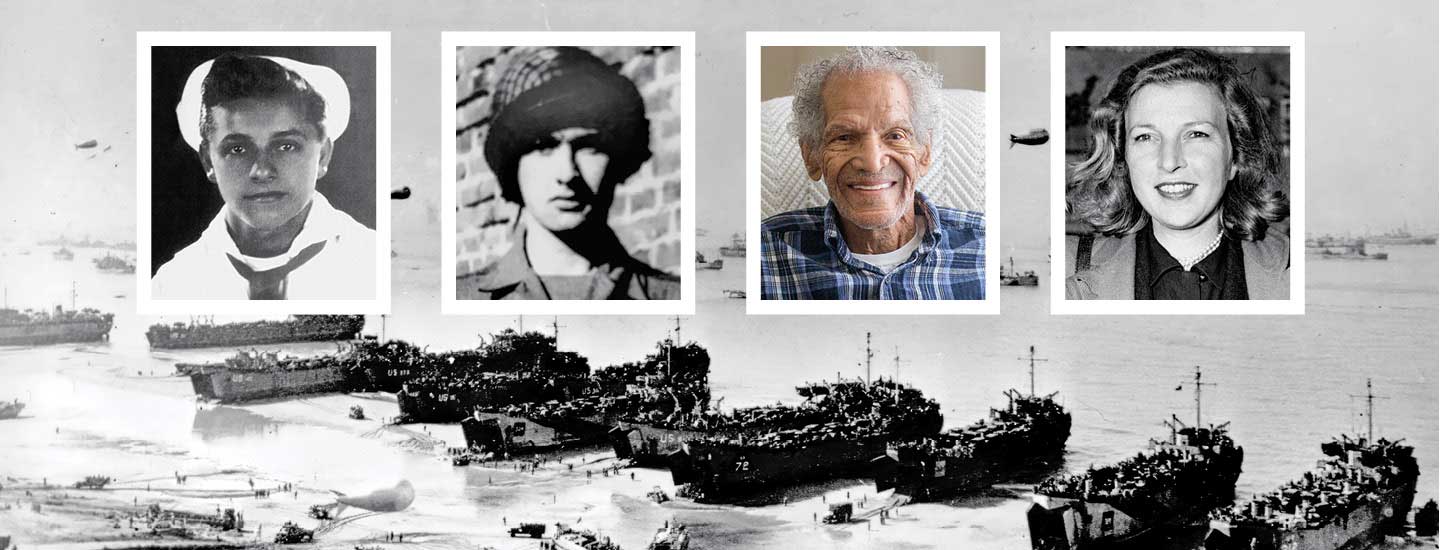Frank DeVita was 19 years old on June 6, 1944. As a member of the U.S. Coast Guard, he helped ferry troops from a large military ship to a stretch of shore that was code-named Omaha Beach. DeVita and the troops traveled on a Higgins boat, which had a ramp that could be lowered so the soldiers could exit quickly. DeVita’s job was to lower the ramp—a dangerous task that exposed everyone on board to relentless German machine gun and mortar fire. On D-Day, he made 15 trips, delivering about 450 soldiers to Omaha Beach—the invasion’s deadliest piece of shoreline. In 2020, DeVita told Junior Scholastic about that day. He died in 2022, at 96 years old.
On D-Day, you were in one of the first boats to reach Omaha Beach. What was that experience like?
I’ll be honest with you, I was scared. Everybody was scared. The Germans had 33 machine guns where the water meets the sand, and they were firing at us.
My job was to drop the ramp on the front of the boat. But I didn’t want to drop it, because the bullets were bouncing off it. I knew once the ramp was open, the bullets would come into the boat. I dropped the ramp, and just like I thought, the machine gun fire came in, and 14 to 15 guys died.
It was hell. We had 90 percent casualties. And we lost six boats on the first wave. We started with 30 boats.
How would you describe the scene unfolding before you on the beach?
It was complete pandemonium. People were screaming and crying. The bullets were like a swarm of bees around your head. Somehow, they missed me. I was very fortunate.
What happened when you returned to the ship after that first run?
I had to make a big decision. Do I go back [with another boatload], or do I let somebody else go in my place? I thought, if somebody takes my place and dies, how would I feel for the rest of my life? So I decided to go back, and I went back 14 more times.
You have received a lot of awards for your military service. Do you consider yourself a hero for your role during the war?
No, no, no. In Normandy, right above Omaha Beach, is a big cemetery. And in that cemetery, there are 9,400 people who died in Normandy. Those are my heroes. I’m not a hero. I’m a survivor.
What do you want kids to know about the war?
What we were fighting for was freedom. Kids have to understand there is nothing better than your freedom. When you’re free, the whole world is at your fingertips.

